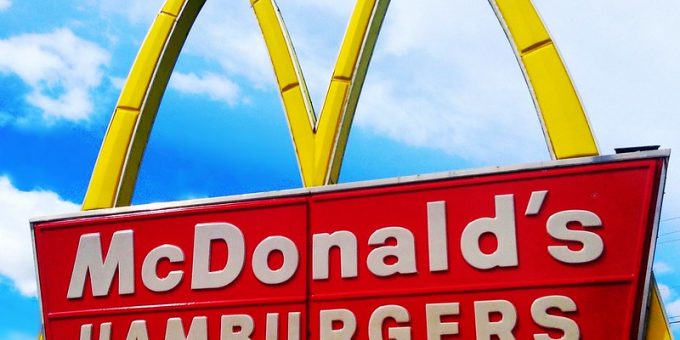
Photo by Mike Mozart, Flickr CC. https://flic.kr/p/nj5au4
the moral appeal of mcdonald’s?
Imagine yourself, driving home from a long workday late some Thursday evening. In those moments, the neon glow of fast-food burger joints can seem to have a primal pull. But your choice among the various options isn’t only about hunger, convenience, or desperation, attests a recent Cultural Sociology article, it’s also about morality.
In “Moral Entrepreneurialism for the Hamburger: Strategies for Marketing a Contested Fast Food,” University of Toronto scholars Natália Otto, Josée Johnston, and Shyon Baumann use critical discourse analysis to analyze the websites and marketing campaigns of three major hamburger chains. In doing so, the authors identify three primary moral frames used by these chains as they push back against negative (often moral) perceptions of meat: global sustainability (McDonald’s), natural simplicity (A&W), and nostalgia and freshness (Wendy’s). Each of these frames bounds morally coded language and images aimed to associate products with particular values and evoke emotional reactions in consumers. Moral frames that mesh with target markets’ values build brand trust, loyalty, and desirability.
This form of “moral entrepreneurship” is a direct response to the increasing public scrutiny of fast food and the fast-food industry’s effects on personal and environmental health. By using moral frames to undermine negative impressions, the brands hope to make their burgers that much more palatable.
